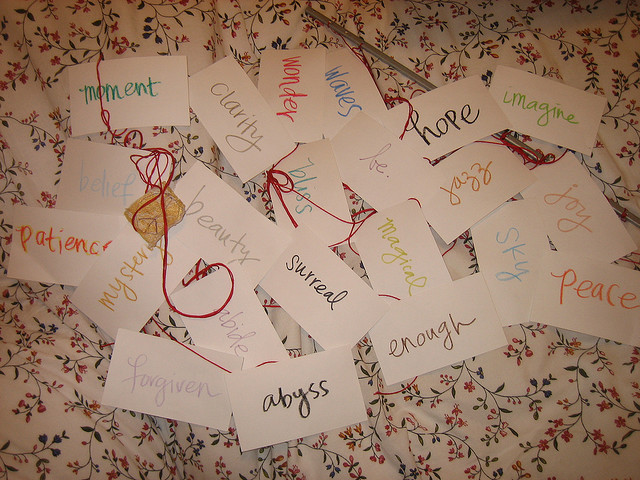It’s amazing how – despite having studied in English medium schools – many of us get confused between the usage of certain words. Here is a sampler:
It’s vs. Its
I see this mistake fairly often, even made by very educated people. It’s is a contraction of it is or it has while its is a possessive pronoun meaning, roughly, of it or belonging to it.
Examples:
* It’s my firm belief that there has never been a rock band as good as the Beatles.
* The cheetah is a large-sized feline known for its ability to move very fast.
Fewer vs. Less
I have found this mistake being made by some supermarkets and stores – for example, ‘Buy 10 items or less’. The rule is simple: if you can count it, use fewer; if you cannot, use less.
Examples:
* If you buy ten items or fewer, you may not get the bulk discount.
* If you do not smoke, you are less likely to develop a serious ailment.
Effect vs. Affect
Affect is generally used as a verb and means ‘to act on’ or ‘to move’ or ‘have an influence on’. Effect is generally used as a noun to mean ‘cause’, ‘result’ or ‘consequence’. It can also be used as a verb to mean ‘to bring about’.
Examples:
* The way you behave with your children affects their development.
* The Effect of Gamma Rays on Man-in-the Moon Marigolds. (That, by the way, is the name of a Pulitzer Prize winning play by Paul Zindel. It was made into a movie that was directed by Paul Newman and starred his wife, Joanne Woodward, in the lead. It is the longest movie name I have come across).
Bring vs. Take
The usage of bring and take is dependent upon the point of reference. You ask people to bring things to you or to where you are and you take things to the place you are going. Or more simply, bring implies here and take implies there.
Examples:
* Could you please bring a bottle of wine with you when you come here?
* I think I will take a bunch of flowers with me to give to her.
Who vs. Whom
Who and whom tend to get used interchangeably and no one seems to notice. But there is the right way to use the two. Both are pronouns but ‘who’ is used in place of the subject of a question while ‘whom’ is used in place of the object of the question. Who, like I, he, and she, is a subject – it is the person performing the action of the verb. Whom, like me, him, and her, is an object – it is the person to/about/for whom the action is being done. Whom is also the correct choice after a preposition: with whom, one of whom, not ‘with who, one of who’. If you are still confused, a simple rule when to use who and when to use whom is: use who when you are talking of he/she and use whom when you are talking of him/her.
Examples:
* Whom should I vote for – Barack Obama or Mitt Romney? (I will vote for HIM).
* Who threw that water balloon at me? (HE did).
Which vs. That
This one can get pretty confusing. The confusion arises mainly when introducing clauses that modify nouns. Grammarians make a distinction between two types of clauses, which they call restrictive and non-restrictive. A restrictive clause is one that restricts the scope of the noun it is referring to. A non-restrictive clause is one that can be left out without changing the meaning of the sentence. ‘That’ is used as a restrictive clause while ‘which’ is used as a non-restrictive clause.
Examples:
* Sonia likes shoes that are expensive. (Restrictive because Sonia doesn’t like inexpensive shoes).
* Sonia also likes diamonds, which are expensive. (Non-restrictive because the second part of the sentence could be removed. All diamonds are expensive).
Lay vs. Lie
Lay is a transitive verb; it must be used with a direct object. Lie, on the other hand, is an intransitive verb and cannot be used with a direct object. Or, looking at it another way, lie means ‘to rest’, lay means ‘to place’. In the case of lay, you are placing a direct object.
Examples:
* I am really tired and want to lie down. (No direct object here).
* Will you lay the toys on the table? (Here toys are the direct objects).
Poets and lyricists are allowed a certain creative license but, as Grammar Girl points out, there are two iconic singers/songwriters who got it wrong! We have all heard Clapton’s Lay Down Sally. According to Grammar Girl, “to say ‘lay down Sally’ would imply that someone should grab Sally and lay her down. If he wanted Sally to rest in his arms on her own, the correct line would be ‘lie down Sally’.” One of Bob Dylan’s most famous songs is ‘Lay Lady Lay’. That, too, is wrong! The lyrics should be ‘Lie lady lie, lie across my big brass bed’.
A simple point: you lay something down; people lie down by themselves.
May vs. Might
May and Might essentially mean the same; both indicate possibility or probability and, may be, that is the reason why people confuse between the two. ‘May’ is used when something is likely to happen and ‘might’ when something is unlikely or less likely to happen.
Examples:
* It may rain today and it might rain today sound the same but the first one implies a higher probability.
However, keep in mind that ‘may’ should NEVER be used in a negative hypothetical because it could imply that the person ‘does not have permission’. For example, saying ‘I may not go to the play’ could be misconstrued as ‘I am not allowed to go to the play’. In this case, you always use ‘might’: I might not go to the play. Another important point to remember is that ‘might’ is the pat tense of ‘may’. If you are talking of the past, you should always use ‘might’. ‘My boss might have gone to the party last night. I might have strained my back will doing strenuous exercises at the gym’.
Farther vs. Further
Farther has a physical connotation whereas ‘further’ is conceptual and means ‘to a greater degree’. The word ‘farther’ should only be used in the context of distance. For example ‘How much farther do we have to go before we grab some grub?’
‘Further’ has been used interchangeably with ‘farther’; however, it has more varied uses:
* To mean ‘moreover’: ‘Further, you can be very selfish at times’.
* To mean ‘more extended’: ‘I have no further comments to make on the subject at this time’.
* To mean ‘additional’: Further updates will be provided as and when we get them’.
Disinterested vs. Uninterested
Disinterested means impartial or not taking sides. Uninterested means ‘not interested’.
Examples:
* A good umpire should always be disinterested.
* She was uninterested in his overtures.
Principle vs. Principal
Pretty simple, but I see the mistake being made fairly often. Principle is a noun and means a fundamental truth or proposition. It could also mean the rule or belief that governs ones behaviour. Principal, too, is a noun and means ‘chief’ or ‘main’ (apart from other meanings).
Examples:
* There are some fundamental principles of marketing that you should never ignore.
* Heavy smoking is one of the principal causes of ill health.
Historic vs. Historical
The two words overlap but have distinct meanings. Historic means ‘momentous’, ‘important’, ‘historically significant’. Historical means ‘pertaining to history’, ‘belonging to the past’.
Examples:
* August 15, 1947 was a historic day because India achieved independence from British rule and became a sovereign nation.
* The Far Pavilions is a historical novel and tells the story of a British officer during the British Raj.
And, just in case you missed it, the heading for this article should be ‘It’s Confusing’!
Visual Courtesy: http://www.flickr.com/photos/gliuoo/







